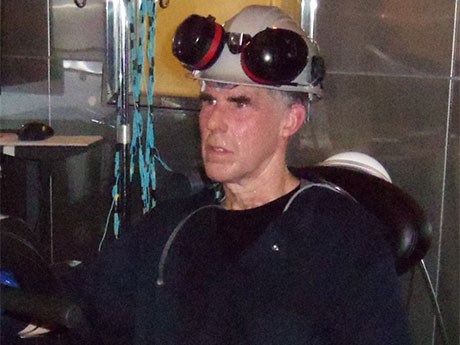Mitacs-Accelerate program links companies with grad students and post docs
Research carried out by kinesiologist Heather Wright of the University of Ottawa promises to shed light on the impact of extreme heat on older miners.
Commissioned by Vale and funded in part through the Mitacs –Accelerate research internship program, the study may influence guidelines dictating a miner’s exposure to extreme heat, the frequency and number of breaks they should take and acceptable levels of core temperature.
Current guidelines, explained Wright, “are based on testing done on young, healthy individuals” and may not be appropriate for older workers.
Research suggests that older individuals have a reduced ability to dissipate heat and could be at greater risk, she noted.
“We know there are physiological changes and cardiovascular changes as people age, so the question is, how does that affect people working in mines and do the guidelines need to be adapted for different age groups?”
Also looked at was the impact of different ventilation fan speeds on heat dissipation.
Wright, a PhD specializing in thermal and environmental physiology, carried out the study under the supervision of Dr. Glen Kenny of the University of Ottawa’s School of Human Kinetics, who has done similar research for the CAMIRO-managed Deep Mining Research Consortium.
A whole body calorimeter in the school’s lab simulates underground temperatures and measures heat dissipation.
Wright’s findings are in the process of being published.
The Mitacs-Accelerate internship program provides graduate students and post docs with an opportunity to apply their expertise to business research challenges. Under the program, companies pay $7,500 to take on a graduate student or post doc for a period of four months. Mitacs-Accelerate matches the contribution for a total of $15,000 with the intern assured of a minimum $10,000 stipend.
An Ontario government allocation of $8.4 million will fund 1,400 internships in the province over the next two years.



